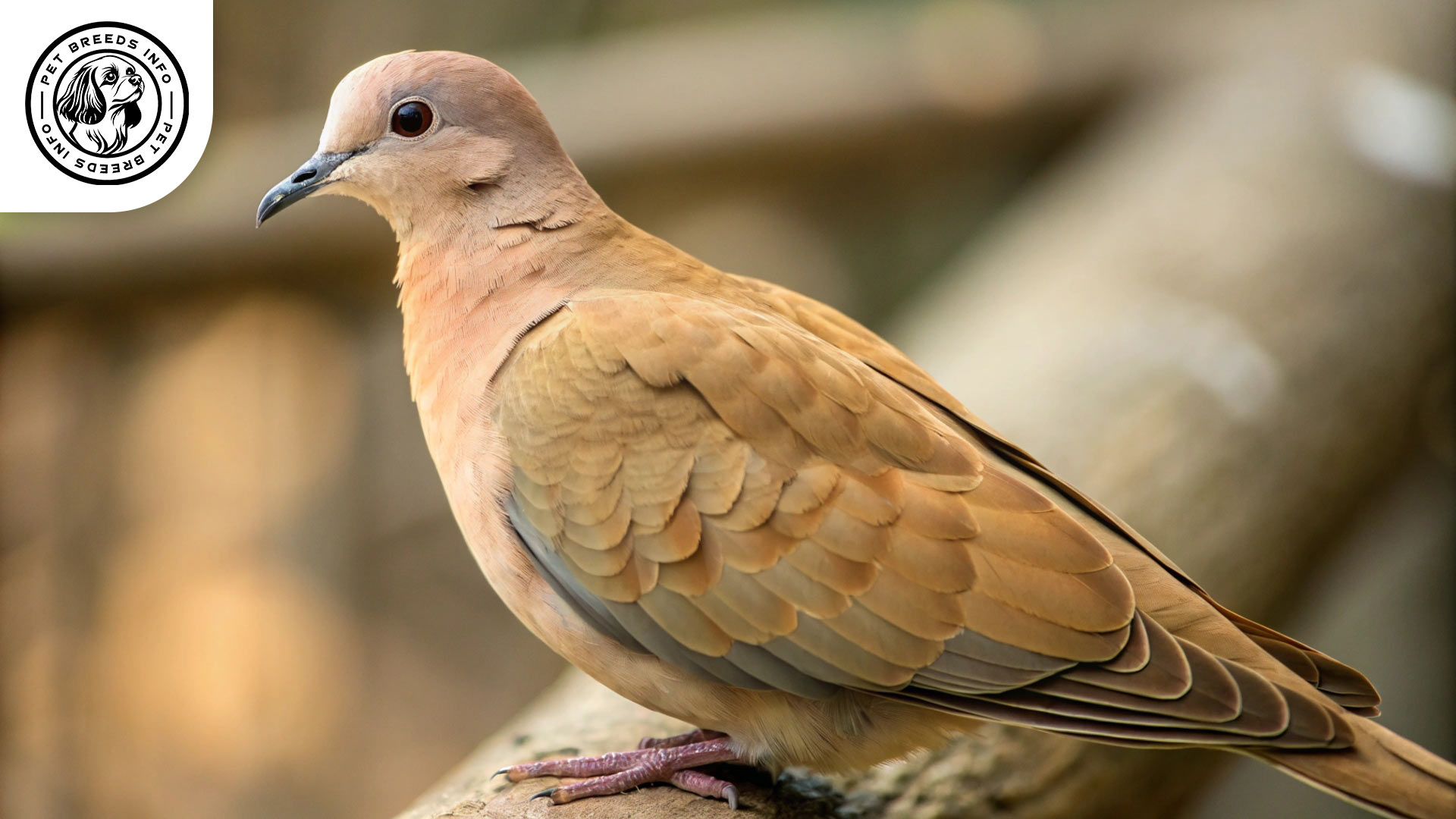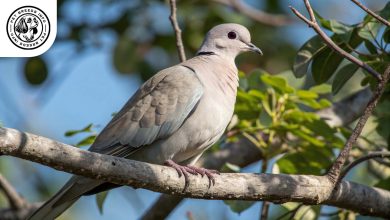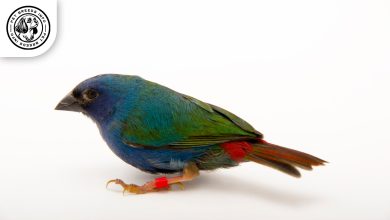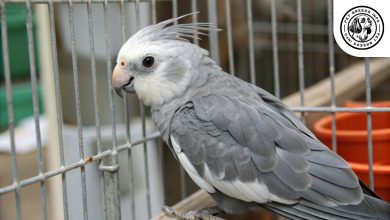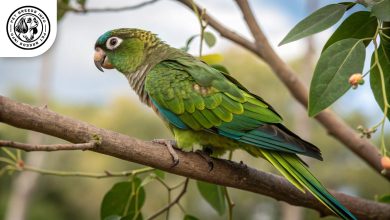Lemon Dove Bird: Personality, Lifespan, Food & Care
General Introduction of the Breed
The Lemon Dove (Columba larvata), also known as the African Lemon Dove, is a species of bird native to the forests of sub-Saharan Africa. This dove is known for its distinctive plumage and secretive nature. It primarily inhabits dense forests and prefers a quiet, shaded environment.
The Lemon Dove has been observed across various African regions, including South Africa, Kenya, Uganda, and Ethiopia. It is not commonly bred in captivity, as it thrives best in its natural habitat.
Table of Contents
| Common Name | Lemon Dove, African Lemon Dove |
| Scientific Name | Columba larvata |
| Origin | Sub-Saharan Africa |
| Size | Medium-sized, 25 to 32 cm in length |
| Lifespan | 7-10 years (wild), potentially longer in captivity with proper care |
| Talking Ability | Not mentioned as having the ability to talk |
| Colors | Soft lemon or olive-brown overall, lighter underparts, richer brownish upperparts and wings |
| Noise Level | Not described as particularly noisy, prefers a quiet environment |
| Social Behavior | Solitary or found in pairs, not highly social |
Physical Characteristics
The Lemon Dove is a medium-sized bird, with an average length of 25 to 32 cm. Males and females share similar body structures, though there can be slight differences in plumage coloration.
The bird derives its name from the soft lemon or olive-brown coloring of its feathers, although its overall tone is more subdued than bright yellow. The underparts are often lighter, while the upperparts and wings have a richer brownish hue.
Its eyes are dark, and it has a relatively small head compared to its body. The slender, slightly curved beak is dark with a pinkish base. Its legs and feet are a muted pinkish-gray, and its tail is medium-length with a rounded edge.
Read More: Green-winged Macaw
Personality and Temperament
The Lemon Dove is a shy and elusive bird, often preferring to remain hidden in dense foliage. Unlike more social dove species, it tends to be solitary or found in pairs.
It is not a highly active bird but spends a significant amount of time foraging on the forest floor. Its behavior is calm and gentle, making it an intriguing but low-maintenance species to observe. While it can adapt to human presence when raised in captivity, it generally prefers a quiet environment with minimal disturbances.
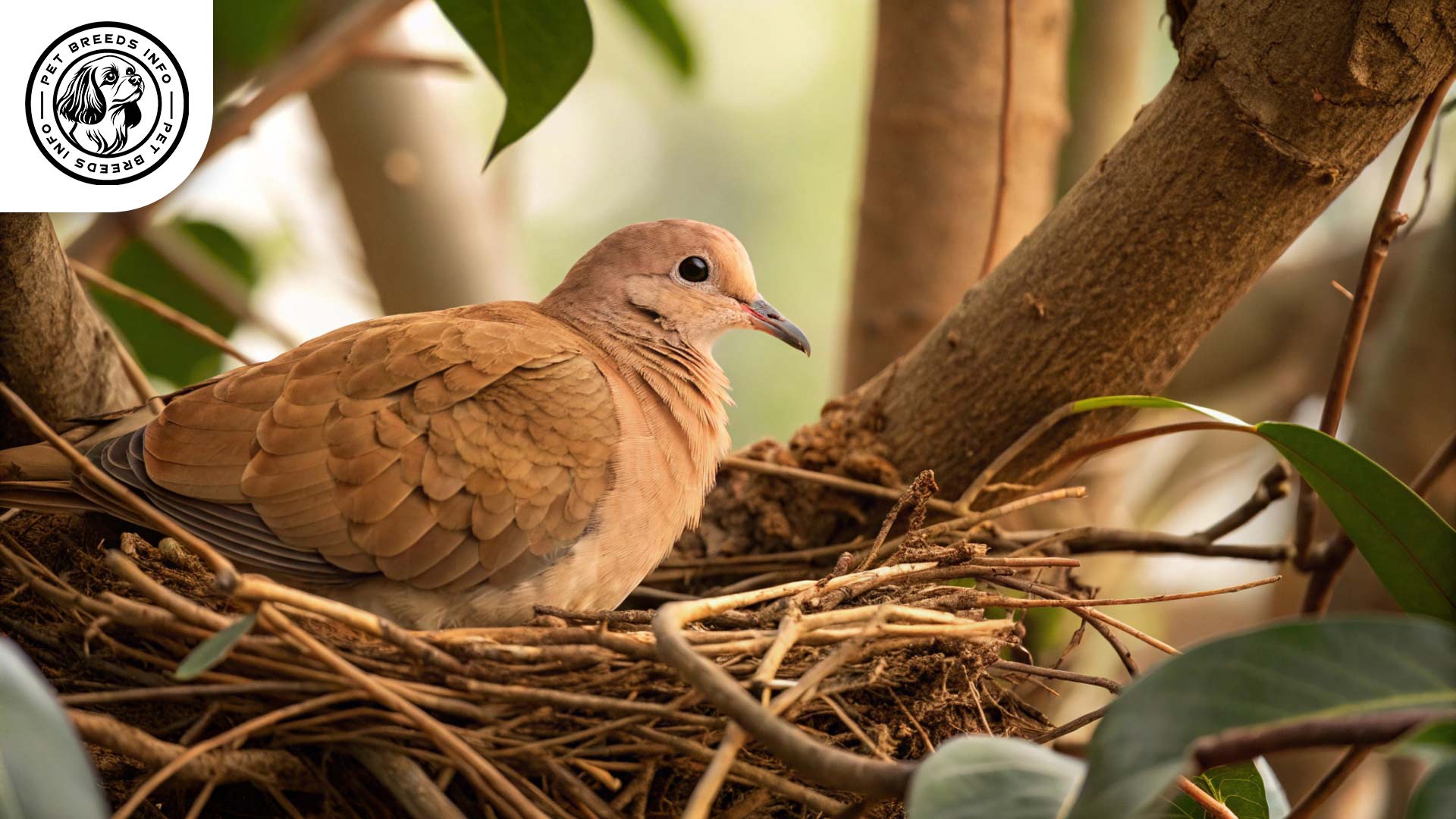
Care and Maintenance Requirements
Given its natural habitat in dense forests, the Lemon Dove requires an aviary setup that mimics a forested environment. It needs shaded areas, foliage, and a suitable substrate to forage on.
This species does not require extensive grooming but benefits from occasional misting to maintain feather health. Clean water and a comfortable perching environment are essential. It is sensitive to extreme temperatures and benefits from a stable, moderate climate.
Diet and Nutrition
The Lemon Dove primarily feeds on seeds, berries, and small insects. A varied diet consisting of fresh fruits, specialized bird seed mixes, and occasional protein sources like mealworms helps maintain its health.
Foods that should be avoided include processed or sugary foods, avocado, and chocolate, which can be toxic to birds. Clean, fresh water should always be available.
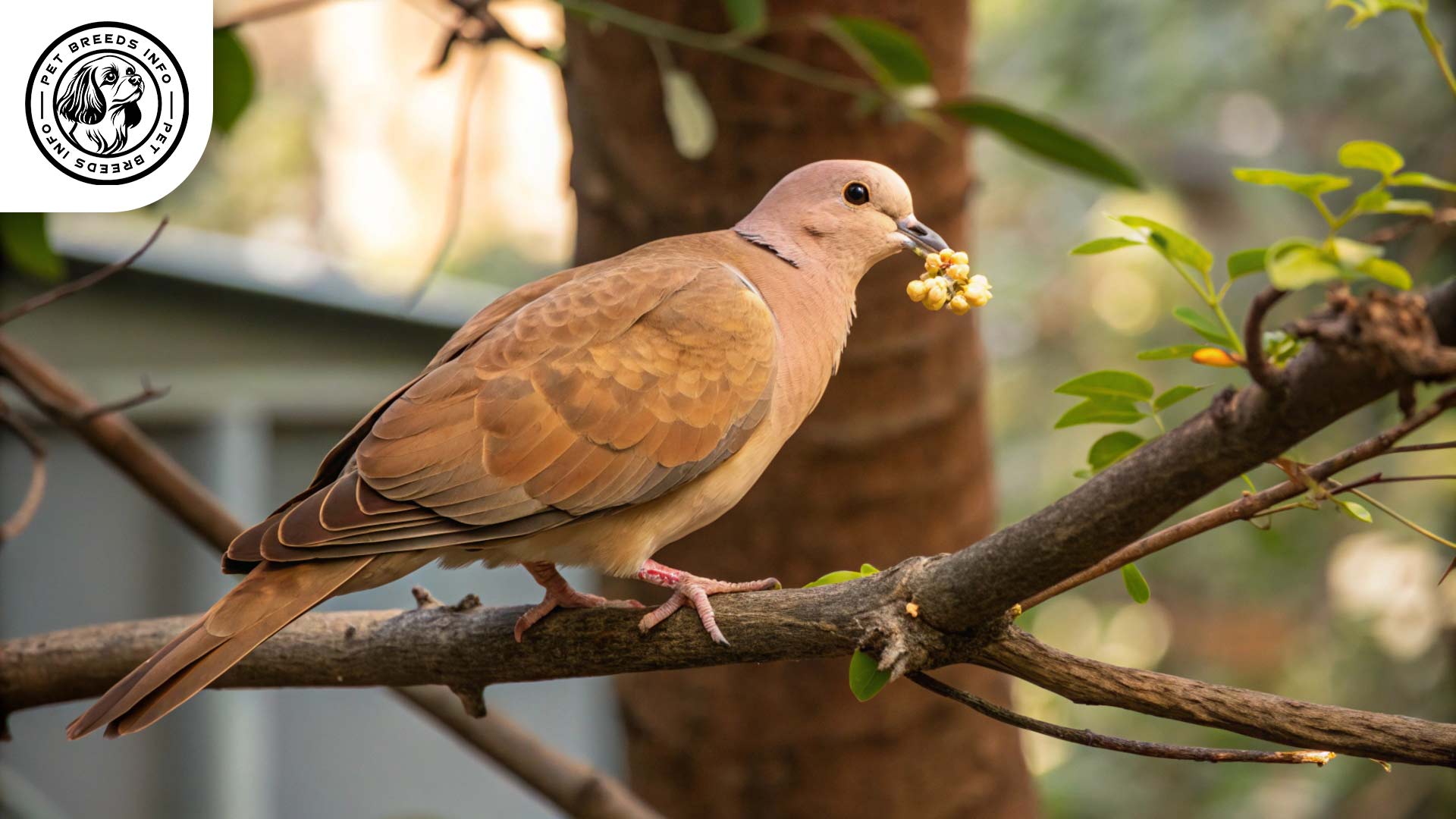
Health and Common Medical Issues
The Lemon Dove is generally a hardy bird when kept in proper conditions. However, it can be susceptible to respiratory infections, mites, and fungal diseases if hygiene is not maintained.
Regular health checks and veterinary visits are recommended, especially if signs of lethargy, weight loss, or breathing issues appear. The average lifespan in the wild is around 7-10 years, while captive individuals may live slightly longer with proper care.
Read More: Hoffmann’s Conure
Training and Behavior Management
Since the Lemon Dove is naturally shy, training it for interaction or handling can be challenging. It is best to allow the bird to become familiar with its surroundings and gradually introduce human presence.
Positive reinforcement, gentle handling, and a calm approach help reduce stress. Avoid loud noises or sudden movements, as the Lemon Dove is highly sensitive to disturbances.
Interaction with Other Animals and Humans
The Lemon Dove is not highly social and prefers to be alone or in pairs. If kept with other birds, a quiet and spacious environment with minimal competition for resources is necessary.
It is not an ideal pet for households with young children, as it does not tolerate handling well. It is best suited for experienced bird keepers who can provide a calm and naturalistic habitat.
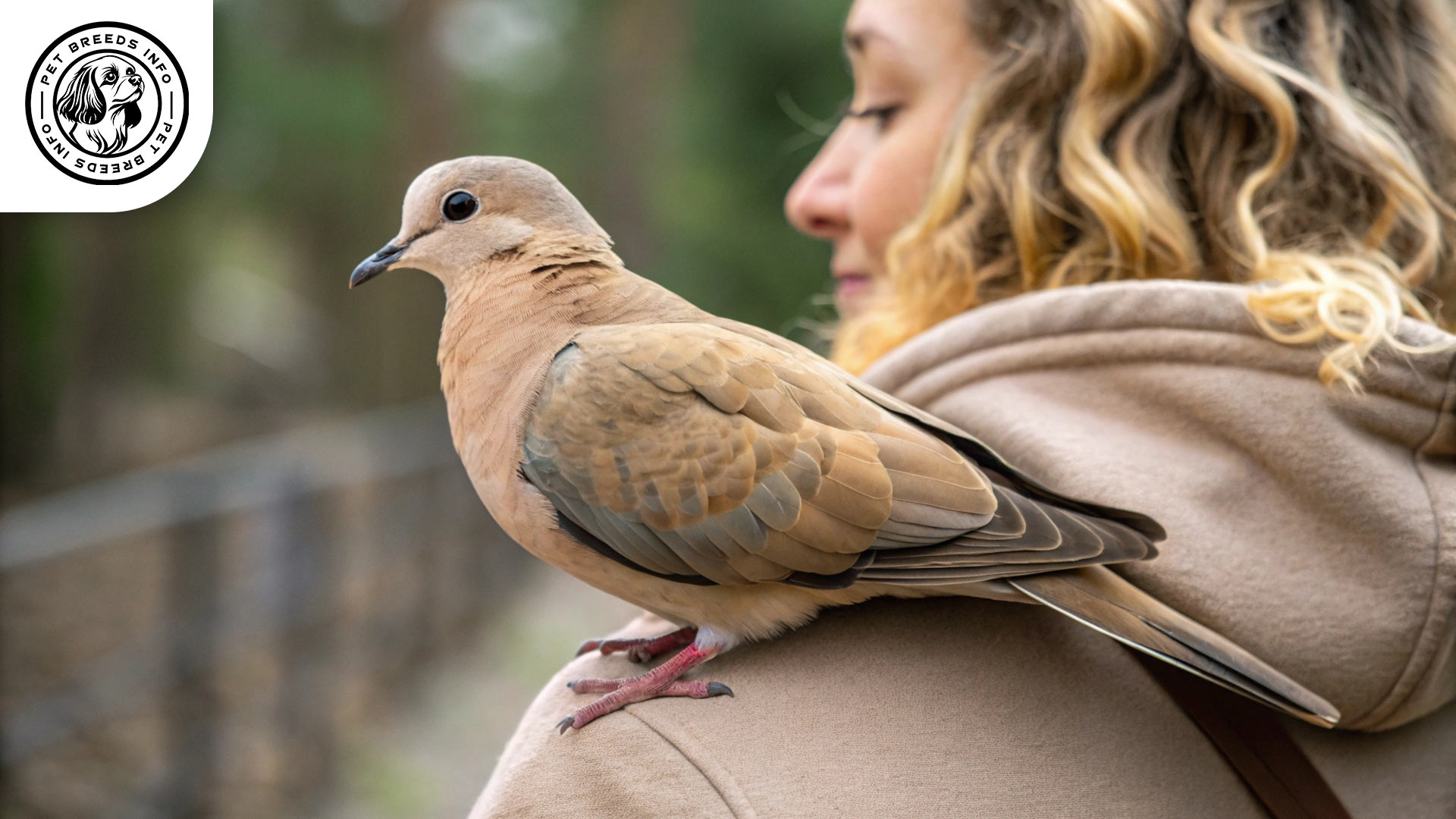
Price and Availability
The Lemon Dove is not a commonly domesticated species, which makes it relatively rare in the pet trade. Prices vary depending on location and breeder, but they can be expensive due to their specialized care requirements.
Those interested in acquiring a Lemon Dove should seek reputable bird breeders or conservation programs focused on ethical birdkeeping. Many bird enthusiasts prefer to observe them in the wild rather than keep them in captivity.
Conclusion and Final Thoughts
The Lemon Dove is a beautiful, elusive bird best suited for nature lovers and conservationists who appreciate its natural behavior. It requires a calm and spacious environment to thrive and is not a typical pet bird for beginners.
Potential owners should consider their experience level, available space, and commitment to maintaining a naturalistic habitat before acquiring a Lemon Dove. Those who can provide the right conditions will find this species to be a fascinating and serene companion.
Read More: Indigo Finch
FAQ
What is a Lemon Dove?
The Lemon Dove is a medium-sized bird native to the forests of sub-Saharan Africa, known for its soft lemon or olive-brown plumage and shy nature.
Where do Lemon Doves live?
They inhabit dense forests in sub-Saharan Africa, including regions like South Africa, Kenya, Uganda, and Ethiopia.
Are Lemon Doves good pets?
They are not typically recommended as pets for beginners due to their shy nature and specific habitat requirements, needing a calm and spacious environment.
What do Lemon Doves eat?
Their diet primarily consists of seeds, berries, and small insects.
How long do Lemon Doves live?
In the wild, their average lifespan is around 7-10 years, and they may live slightly longer in captivity with proper care.
